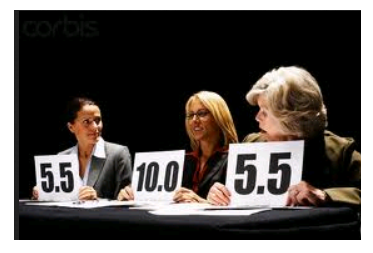Why “can’t” you rate the essence of a human?
|
![]()
|
![]()
REX REPLIES
Hi Jane,
Great to hear from you, Excellent, thought-provoking questions, indeed, which I doubt we will be able to do justice to in a forum such as this. But that has never stopped me from trying, so here goes.
I guess the best way to answer your first question is by starting with your second question about ePrime.
REBT embraces ePrime. One of the early editions of Dr. Ellis’s A New Guide to Rational Living (later, re-titled as simply A Guide to Rational Living) was written in ePrime. In subsequent editions the language was changed to more standard English because, I guess, the ePrime sounds “peculiar” and is distracting unless you are clear about why it is written in that style.
You asked why you can’t rate the essence of a human. We don’t like “can’t.” It often represents a special kind of cognitive distortion in it’s own right. And, of course, you can rate the essence of a human, or you can try to. We do it all the time. But REBT wants to persuade you that it is not a good idea. Having said that, I like ePrime because using it, you literally cannot rate a person’s essence. ePrime simply doesn’t allow you to do so. It’s innate architecture forces you to rate behavior not essence or “self.”

 ePrime eliminates the use of the being verb, all forms of “is.” So, in ePrime there is no way to say “Osama is a bad man.” It is not a moral or philosophical issue because without “is,” you simply cannot say that Osama is this, that or the other thing. ePrime forces you describe behavior, something along the lines of “Osama behaved badly.” This sentence doesn’t sound peculiar, but using adverts (bad + ly) in this way can get pretty tortured and begin to sound strange which may explain why it is not used more commonly.
ePrime eliminates the use of the being verb, all forms of “is.” So, in ePrime there is no way to say “Osama is a bad man.” It is not a moral or philosophical issue because without “is,” you simply cannot say that Osama is this, that or the other thing. ePrime forces you describe behavior, something along the lines of “Osama behaved badly.” This sentence doesn’t sound peculiar, but using adverts (bad + ly) in this way can get pretty tortured and begin to sound strange which may explain why it is not used more commonly.
Why is this important?
Because it forces us to get specific and ask “What behavior do you refer to?” And, of course, we are referring to Osama’s orchestration of the “911” attacks and other acts of terror and violence. Doing so makes it clear that no matter how despicable some of Osama’s behavior may have been, it would be impossible for 100% of his behavior to be despicable, and in all likelihood he behaved well much of the time, and probably did a lot of good things as well. This can be a bitter pill to swallow when we are feeling the grief for tragic loss and have already decided in our own mind that someone is a “monster” or some other “rating” or global identity. It is often pointed out in these discussions that Hitler loved animals and children.
Disclaimer: I and no one else arguing for this position is trying to defend the behavior of people such as Osama Bin Laden and Adolf Hitler, nor do I feel they should be granted any sympathy or special dispensations. We are just saying that even people who have committed the most despicable deeds are composed of exactly the same atoms as you or I or Jesus Christ. We are all composed of the exact same proverbial “98 Cents of Chemicals” as one another, and there simply is no such thing as good or bad carbon, or hydrogen or calcium or the other elements that make up the human body. Carl Sagan certainly put it more elegantly than I in saying both poetically and scientifically that we are all made of “star stuff.”
If that is true, then therefore, there can be no good or bad star stuff, only star stuff. And if that is the case, it is also the case for our essential selves, for our essence, for our basic nature.
Rating behavior rather than self is a much healthier way of thinking and communicating. It forces us to be specific, and being specific forces us to be more open and honest, and to take responsibility for our feelings and opinions. For example, if we say “Joe is an asshole!” That doesn’t tell us much. All we can really know for certain is that the word “asshole” is used as a kind of empty vessel or a medium or conveyance to express contempt or aggression or fear or disgust. Rather than a form of language, it is best to think of this type of word as a snarling or growling sound such as animals make when they are angry and expressing fear, disgust or aggression.
|
It is vital to learn to identify when someone is expressing an actual idea or concept as opposed to when they are merely using empty language as a means to express contempt. This will avoid the problem of falling down the rabbit hole and attempting argue reasonably and factually without someone when they are merely expressing unreasoned anger, fear, hostility, and often seem perfectly happy to leave the so called “conversation” at that level.

If we use ePrime, we have to say, “Joe behaved as an asshole!” Which then forces more specificity “When? Where? How? What do you mean?” If we are prepared to be honest, specificity always “smokes us out,” forces us to admit that, perhaps, we are angry with Joe because he turned down our request to borrow $1,000. Now, we are cooking with gas! Now there is some real, meaningful, honest communication possible, at least potentially. Why did Joe turn you down? Was he being stingy? Does he have his own financial problems? Does he have principles regarding lending and borrowing money from friends? Does he have “issues” with you? Does he believe you are not responsible, not a good risk? Who knows? But now at least there is the possibility of finding out and establishing a more meaningful connection. . . all because we avoided “rating” and name calling and got more specific. So, this is far more than “just semantics,” it is a lever which has the potential to open greater intimacy and more authentic communication between people, between you and I, between you and your loved ones, between you and your employer and coworkers.
Irrespective of ePrime, the easiest way of avoiding rating is to come up with a concept of self that is difficult or (even better) impossible to rate. As there is not a universal definition of self that all people can or do agree upon, and as humanity has been debating this issue for millennium, and as there is unlikely to be any such universal definition anytime soon, we all get to choose whatever concept of self we want, within obvious reasonable, sane and rational limits. Probably best to keep it a little bit sane and rational; we wouldn’t want to choose Napoleon, for example, as our concept of self! Having said that, here are some possibilities of a self-concept that is resistant to rating, in no particular order or weight
- A soul
- Consciousness
- Beingness
- Love
- The proverbial 98 cents worth of chemicals
- An atomic cloud (or just atoms or “strings”)
- Bundles of billions of synaptic responses
- A bundle of conditioned reflexes
- A tangle of unconscious drives and impulses.
- A system of biological processes
- A bio-mechanical system or organism.
- The Tao.
- An “operating system” purring away quietly in the background that, unlike Windows, has no blue screens, no bugs or viruses, cannot be hacked and never crashes. How’s that for a fantasy!
All of these are resistant or impossible to rate. 98 cents worth of chemicals–as humble and uninteresting as that may sound—cannot be rated. Chemicals is chemicals is chemicals! More important, my 98 cents worth of chemicals are the same as your 98 cents worth of chemicals are the same as Sally’s, as Fred’s, and yes, even the same as Osama’s. Mine are no better than yours and vice versa and so on. They are no good chemicals or bad chemicals, they are just chemicals.
So, in this process, we don’t worry about “self.” We don’t try to “save” it. We don’t need to get so called “self-esteem.” We don’t need to fix it. We certainly don’t need to transcend it (whatever that means). We don’t need to spiritualize it. We don’t need to psychoanalyze it. We don’t even need to “improve it” in all due respect to you self-improvement fans.
 |
 |
 |
 |
All we need to do is accept it, unconditionally. And if we accept our self unconditionally, we accept the self of others unconditionally.
We are welcome to rate behavior all we want, especially if we are specific, sane, rational and compassionate in the way we do so . . . But never, never, never attempt to rate self.
The REBT position (hardly limited to REBT) is that Osama may have done despicable things, but that does not make him a despicable person. This usually pisses people off no end, but stew on it for awhile and then let us know what you think.
Warm regards,
Rex
Rex@REBTinfo.com
Rex welcomes your questions about REBT-CBT and related matters.See info and instructions for submitting questions in the form below.
![]()
How useful was this post?
Click on a star to rate it!
Average rating 5 / 5. Vote count: 6
No votes so far! Be the first to rate this post.
Originally posted 2013-12-15 23:16:48.
Contact: Rex@REBTinfo.com
- Acceptance is not love! - Tue 3 Mar 26
Search this site
Sticky Posts
Regular Columns & Features
Categories
USEFUL LINKS
Amazon Associate Member
Rex Alexander and REBT Info are participants in the Amazon Services LLC Associates Program, an affiliate advertising program designed to provide a means for sites to earn advertising fees by advertising and linking to amazon.com.
Disclosure
When you buy items using the links on this website, we may get a small commission which keeps me in coffee, which keeps me working, which keeps me providing valuable content for you. Thank you for your continuing support of REBT Info.com. ~Rex
TOS / Terms of Service
Pretty basic stuff: No fussing, no fighting, no cussing, no spamming, no scamming, no blaming, no flaming, no hating, no bating, no trolling, no personal attacks. No pornography (Damn!). The Golden Rule applies. Focus on issues, ideas and principles rather than on personalities and you will fit right in. Please keep your contributions friendly and polite, treat your fellow members and readers with respect and all will be well.
All content and information submitted become the property of REBT Info (REBTinfo.com)
Privacy Policy
PRIVACY POLICY
We at REBT Info value your privacy. Your personal information is secure with us. Secure server software (SSL) encrypts all information you enter before it is sent to us, and all of the customer data we collect is protected against unauthorized access.
We WILL NOT sell, rent, distribute or otherwise share your personal information, including e-mail address, to or with anyone for any reason (except in the extremely rare, unlikely case of demands by duly authorized law enforcement acting strictly in accord with due process).
For more information, please read the long version
Copyright
Copyright © 2012-2026 by Rex Alexander dba REBT Info / http://REBTinfo.com.
All rights reserved. The content of this website or any portion thereof may not be reproduced or used in any manner whatsoever
without the express written permission of the publisher except for the use of brief quotations in a book review.Disclaimer
This website, REBTinfo.com, and others under the REBT Info family are for education, information and entertainment purposes only; are not intended as, nor should be regarded as medical or psychiatric diagnosis, advice or treatment.
By accessing this blog you understand and agree to these conditions, as well as to the other Terms of Service / TOS posted, and which may be updated and amended from time-to-time.
Agreement
By accessing this website blog and related media, you affirm that you have read, understand and agree to our Terms of Service / TOS which may be updated and amended from time-to-time.
This is a public blog
Anything you post may be viewed by the public. Therefore, do not post anything you wish to remain private.




